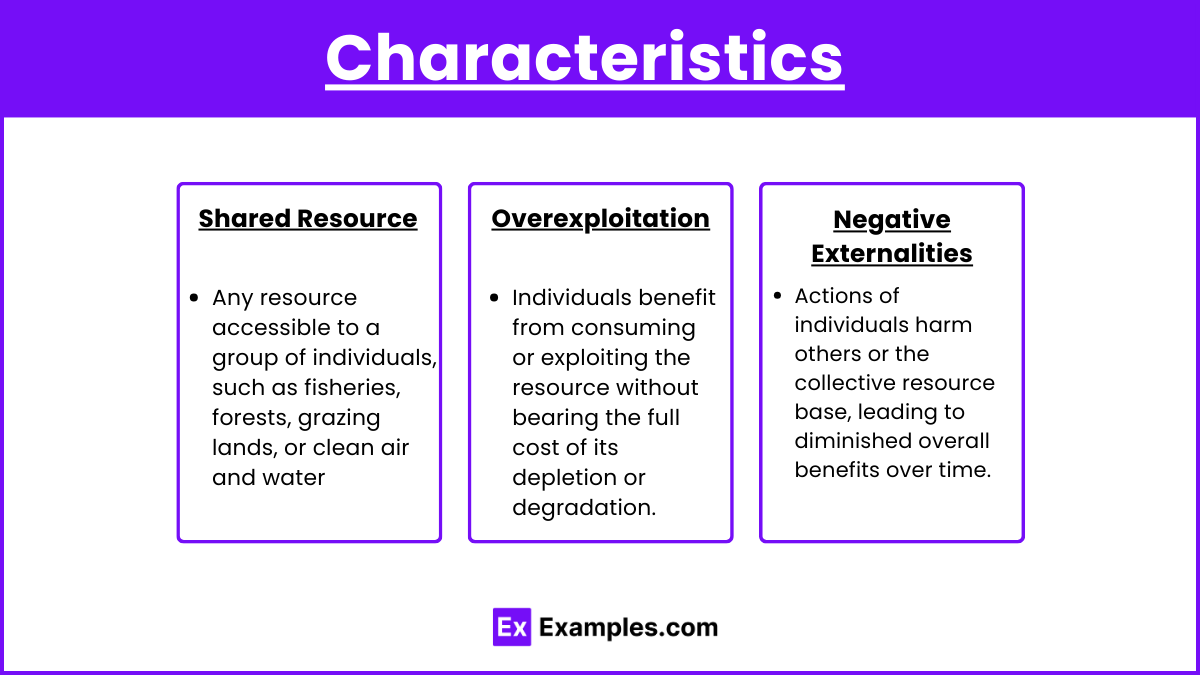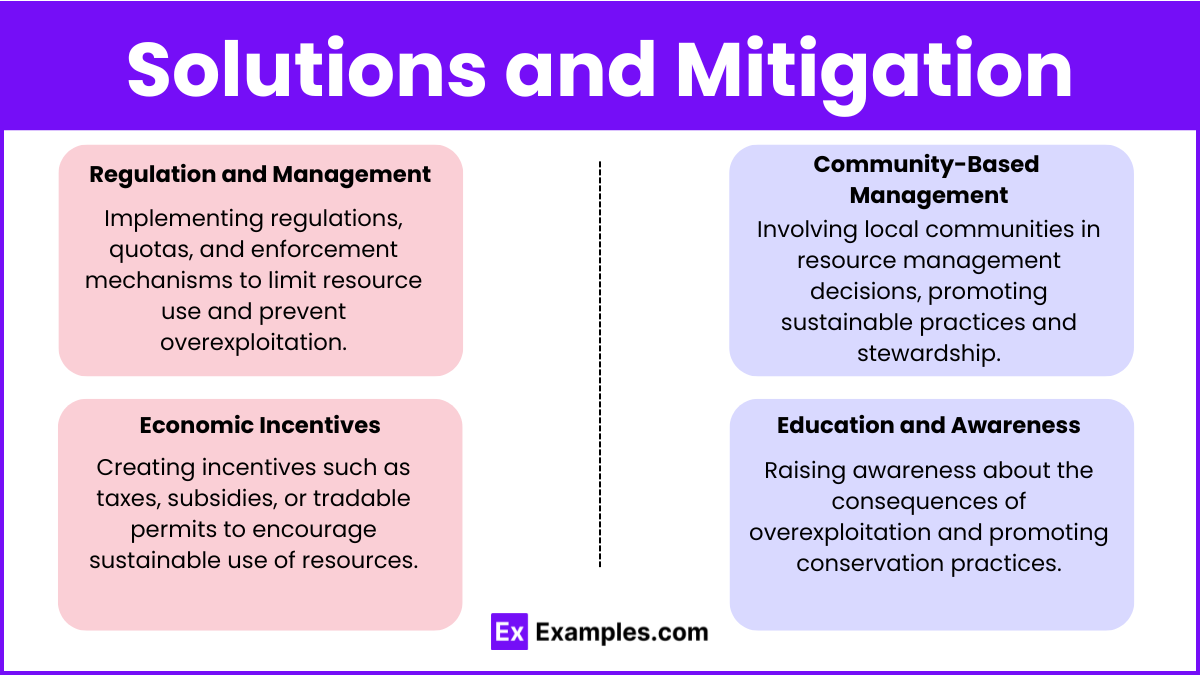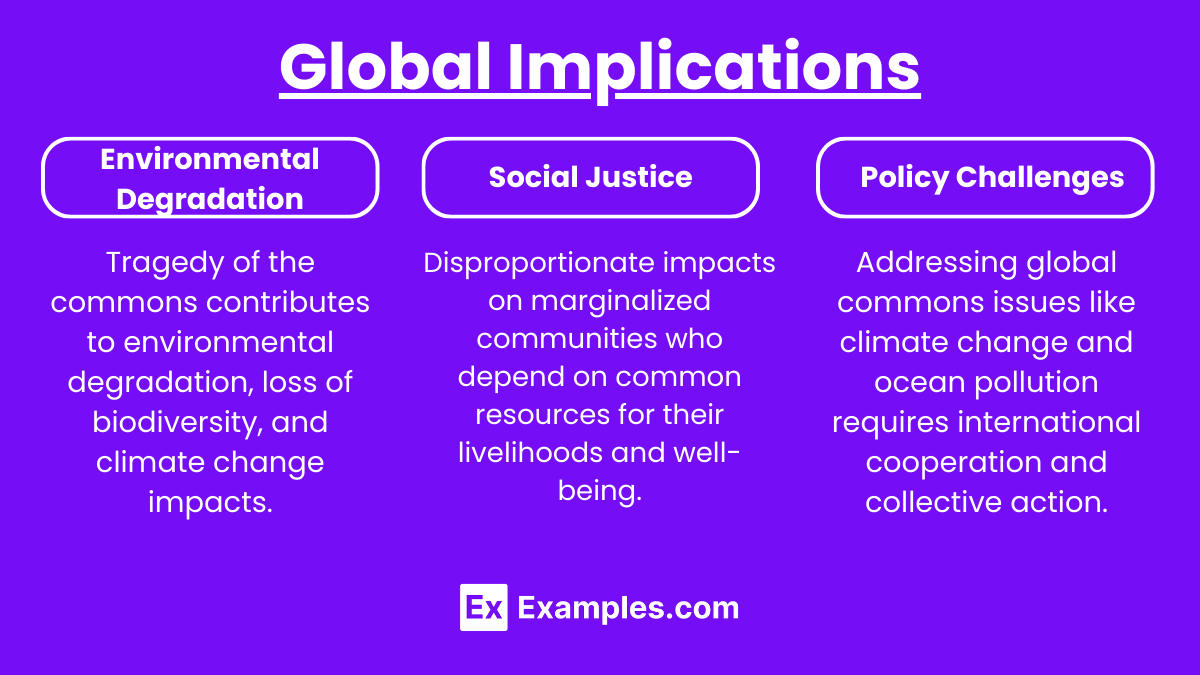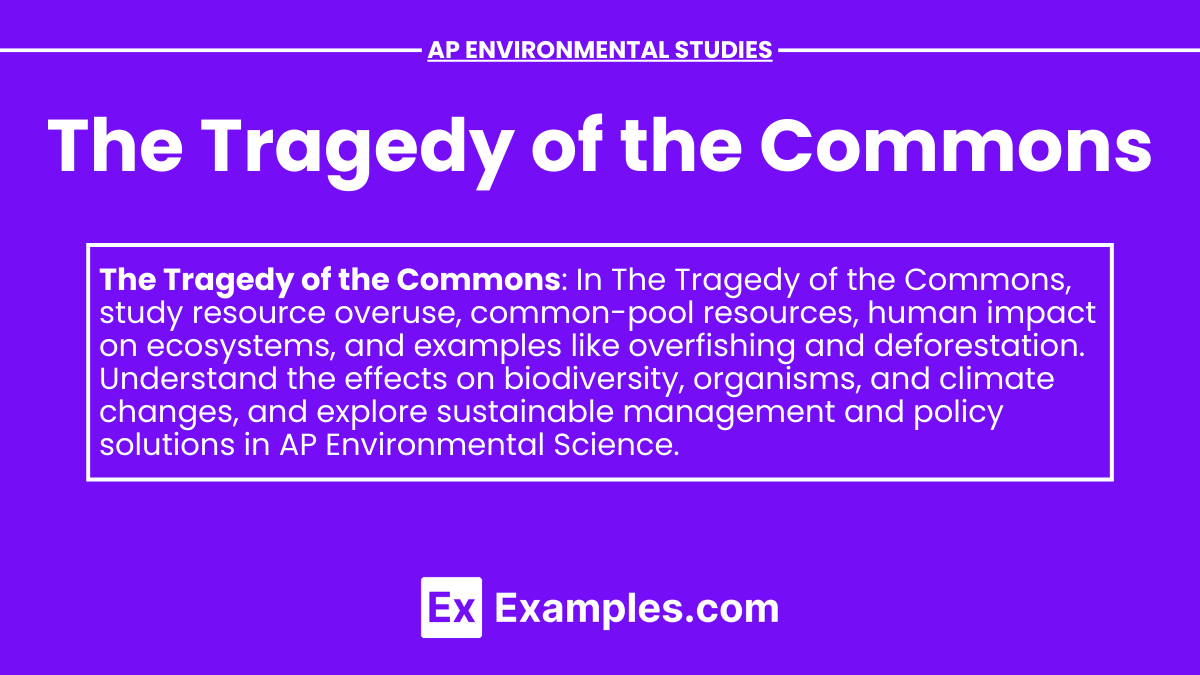The tragedy of the commons is a pivotal concept in AP Environmental Science, illustrating the interplay between ecology, ecosystems, biodiversity, and the biosphere. Coined by Garrett Hardin, it highlights how shared resources, such as fisheries or grazing lands, are susceptible to overexploitation when individuals act in their self-interest without regard for long-term sustainability. This phenomenon often leads to environmental degradation, loss of biodiversity, and ecosystem collapse. Understanding the tragedy of the commons is essential for devising sustainable management strategies that promote ecological resilience and ensure the equitable use of natural resources for future generations.
Learning Objectives
In AP Environmental Science, learning objectives for the tragedy of the commons encompass understanding its impact on organisms, flora, and fauna, as well as broader climate changes. Students explore how unregulated exploitation of shared resources leads to ecological degradation and loss of biodiversity. They analyze case studies such as overfishing or deforestation, evaluating the role of human behavior and policy interventions in mitigating these impacts. The curriculum emphasizes strategies for sustainable resource management, including community-based approaches and international cooperation to preserve natural ecosystems and address global environmental challenges effectively.
Overview
The tragedy of the commons is a concept in environmental science and economics that illustrates how individuals acting in their own self-interest can collectively deplete or degrade a shared limited resource, despite understanding the long-term negative consequences.
Origin and Concept
- Origin: Coined by ecologist Garrett Hardin in 1968, based on the example of common grazing lands (commons) in medieval Europe.
- Concept: Describes a scenario where individuals, acting independently and rationally according to their self-interest, behave contrary to the common good by depleting a shared resource.
Characteristics

- Shared Resource: Any resource accessible to a group of individuals, such as fisheries, forests, grazing lands, or clean air and water.
- Overexploitation: Individuals benefit from consuming or exploiting the resource without bearing the full cost of its depletion or degradation.
- Negative Externalities: Actions of individuals harm others or the collective resource base, leading to diminished overall benefits over time.
Examples
- Fisheries: Overfishing in open-access fisheries where there are no clear ownership or management regulations can lead to the collapse of fish populations.
- Deforestation: Unregulated logging in communal forests where no one has exclusive property rights can result in forest degradation and loss of biodiversity.
- Air and Water Pollution: Industrial emissions and untreated sewage disposal contribute to air and water pollution, affecting public health and ecosystems.
Causes

- Lack of Property Rights: Absence of clear ownership or property rights over the resource can lead to a tragedy of the commons scenario.
- Market Failures: Inadequate pricing mechanisms or regulations fail to account for environmental and social costs of resource depletion.
- Short-Term Thinking: Focus on immediate benefits rather than long-term sustainability and stewardship.
Solutions and Mitigation

- Regulation and Management: Implementing regulations, quotas, and enforcement mechanisms to limit resource use and prevent overexploitation.
- Community-Based Management: Involving local communities in resource management decisions, promoting sustainable practices and stewardship.
- Economic Incentives: Creating incentives such as taxes, subsidies, or tradable permits to encourage sustainable use of resources.
- Education and Awareness: Raising awareness about the consequences of overexploitation and promoting conservation practices.
Global Implications

- Environmental Degradation: Tragedy of the commons contributes to environmental degradation, loss of biodiversity, and climate change impacts.
- Social Justice: Disproportionate impacts on marginalized communities who depend on common resources for their livelihoods and well-being.
- Policy Challenges: Addressing global commons issues like climate change and ocean pollution requires international cooperation and collective action.


